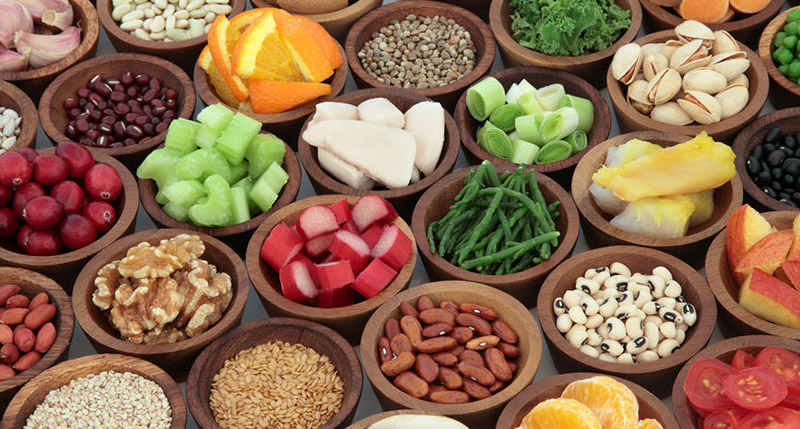There’s been a lot of buzz lately about the alkaline diet, which involves eating and living clean, focusing on real foods – in other words, making a total departure from the Standard American Diet (SAD) that’s high in processed foods, grains, refined sugars, hydrogenated oils and added sodium.
An alkaline diet focuses on how your body reacts to certain foods you eat. As you may remember from high school chemistry, the pH scale ranges from 0 to 14. A pH from 0 to 6.9 is acidic, 7.0 is neutral, and a pH from 7.1 to 14 is alkaline. The human body has an ideal blood pH range from 7.35 to 7.45.
Many articles debunking the alkaline diet are based on the premise that “it’s not possible to change the pH level of the human body.” And that’s exactly right – if you significantly changed the pH of your body, you would die.
The goal of an alkaline diet isn’t to change the pH of the human body, but rather to provide the right nutrients to make it easier for your body’s systems to maintain a balanced pH level. When the body finds itself in an acidic state, it often must leach minerals from bones and vital organs to rebalance, which can cause problems (including osteoporosis) over time. If the body doesn’t have to work as hard to maintain its pH level, it can focus energy on other important activities like cell generation and organ function that enhance health.
What causes acidity in the body?
Lots of things we like to eat cause acidity, including processed foods, animal meats, refined sugars, grains including corn and wheat, alcohol, coffee, sweetened fruit juices, artificial sweeteners, eggs, milk, cheese, antibiotics and other drugs, and even pollution and pesticides. Stress, lack of exercise and low levels of fiber also contribute to high acidity.
How does acidity impact the body?
Acidity has a negative impact on the body. Conditions acidity contributes to include a lowered immune system, weight gain, fatigue, headaches, inflammation, muscle and joint pain, allergies and skin issues. Chronic acidity can contribute to serious diseases including fibromyalgia, arthritis, diabetes, heart disease and even cancer.
Want scientific proof?
Hundreds of studies have touted the benefits of an alkalizing diet. Here are two examples:
- “A lowered pH … results in cellular dysfunction … favoring chronic disease progression and carcinogenesis.” – The Role of Mitochondria in Cancer and Other Chronic Diseases, Journal of Orthomolecular Medicine, Vol 29, No. 4, 2014.
- “From the evidence outlined above, it would be prudent to consider an alkaline diet to reduce morbidity and mortality of chronic disease that are plaguing our aging population.” – The Alkaline Diet: Is There Evidence That an Alkaline pH Diet Benefits Health, Journal of Environmental and Public Health, Vol. 2012.
While pollution, chemicals and prescription drugs contribute to acidity, your daily diet is the most significant source of acidity. By changing your diet to be more alkaline you can improve your ability to maintain pH balance and good health.
What foods promote alkalinity?
It turns out, Mom was right: eating lots of fresh, raw fruits and vegetables is one of the best things you can do for good health. Mom probably didn’t specify that the reason for that is because these foods promote alkalinity in the body. But she was still right! Fresh, preferably organic fruits and vegetables are the best alkaline-promoting foods: avocados, kale, broccoli, spinach, tomatoes, celery, garlic and onions are superstars of the alkaline-forming foods. Oddly, fruits that are known to be acidic including grapefruit, lemons and tomatoes don’t create acidity in the body. The body reacts to them positively and they contribute to alkalinity.
In addition to fruits and vegetables, quinoa, almonds, pumpkin seeds, lentils, goat and almond milks, and olive and coconut oils are alkaline. While animal meat of all types is acidic, it’s not necessary to totally stop eating meat. Just eat less meat. By changing the ratio of what you eat so that it’s 60-80% alkaline and only 20-40% acidic, you’ll be giving your body a huge advantage in maintaining its pH balance, and you’ll notice a boost in energy and general overall wellbeing. Learn more about an alkaline diet here. Access a list of alkaline and acidic foods here.

